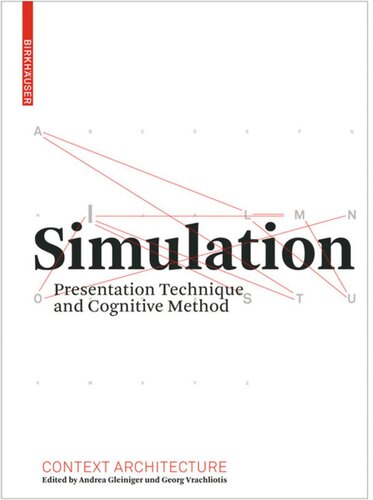

Most ebook files are in PDF format, so you can easily read them using various software such as Foxit Reader or directly on the Google Chrome browser.
Some ebook files are released by publishers in other formats such as .awz, .mobi, .epub, .fb2, etc. You may need to install specific software to read these formats on mobile/PC, such as Calibre.
Please read the tutorial at this link: https://ebookbell.com/faq
We offer FREE conversion to the popular formats you request; however, this may take some time. Therefore, right after payment, please email us, and we will try to provide the service as quickly as possible.
For some exceptional file formats or broken links (if any), please refrain from opening any disputes. Instead, email us first, and we will try to assist within a maximum of 6 hours.
EbookBell Team

4.1
30 reviewsContext Architecture: The first two volumes on basic architectural concepts between art, science, and technology
Digitalization has transformed the discourse of architecture: that discourse is now defined by a wealth of new terms and concepts that previously either had no meaning, or had different meanings, in the context of architectural theory and design. Its concepts and strategies are increasingly shaped by influences emerging at the intersection with scientific and cultural notions from modern information technology. The new series Context Architecture seeks to take a critical selection of concepts that play a vital role in the current discourse and put them up for discussion.
In the context of discussions of the medial, the notion of simulation plays a central role in architecture as illusion and imitation. In dialogue with information technology and computer science, however, that notion has now taken on a new quality in architectural discourse. Today when we speak of simulation we primarily think of "computer simulation," the technical ability to simulate processes.
Whereas simulation used to refer to a mode of presentation, it now connects architecture with the sciences and represents a strategic and methodological instrument, a tool of discovery. With the scientific principle of simulation the focus shifts to the idea of "modeling a dynamic system" (Norbert Wiener), not just presenting finished products but going in search of solutions and developing systems!